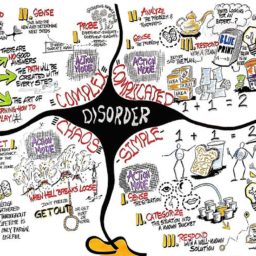
Karl Popper, the great philosopher of science, once divided the world into two categories: clocks and clouds. Clocks are neat, orderly systems that can be solved through reduction; clouds are an epistemic mess, “highly irregular, disorderly, and more or less unpredictable.” The mistake of modern science is to pretend that everything is a clock, … | Jonah Lehrer Continue reading Clouds Not Clocks Jonah Lehrer

1. It is easy to obtain confirmations, or verifications, for nearly every theory–if we look for confirmations. 2. Confirmations should count only if they are the result of risky predictions; that is to say, if, unenlightened by the theory in question, we should have expected an event which was incompatible with the theory–an event which would have refuted the theory. 3. Every ‘good’ scientific … | Karl Popper Continue reading Science as Falsification Karl Popper

Unlimited tolerance must lead to the disappearance of tolerance. If we extend unlimited tolerance even to those who are intolerant, if we are not prepared to defend a tolerant society against the onslaught of the intolerant, then the tolerant will be destroyed, and tolerance with them. — In this formulation, I do not imply, for instance, that we should always suppress the utterance of intolerant … | Karl Popper Continue reading The Paradox of Tolerance Karl Popper

Congruence, Coherence, and Contingent Truth The Roots of the Scientific Method Close Pop-up all posts in this chapter What’s the Vibe? Please be patient as this may take up to a minute to load… Close Science aims to uncover the truths of the natural world through careful observation and experimentation. However, it’s essential to acknowledge … Continue reading The Fallibility of Science Understanding the limits and strengths of science

The Fallibility of Science The Scientific Method for Everyday Life Close Pop-up all posts in this chapter What’s the Vibe? Please be patient as this may take up to a minute to load… Close The scientific method has evolved to solve problems through rigorous inquiry. Facing global issues requires clear, evidence-based approaches. Historical insights into … Continue reading The Roots of the Scientific Method Exploring the history of the scientific method

Technical Challenges and Complex Adaptive Challenges Unintended Consequences Close Pop-up all posts in this chapter What’s the Vibe? Please be patient as this may take up to a minute to load… Close Complex systems defy simplistic problem-solving. Rather than definitive solutions, we can only respond to the intricate web of interconnected elements. In a complex … Continue reading There Are No Solutions to Complex Challenges Only an endless series of adaptive responses

Tolerance enables peaceful coexistence among diverse populations. However, viewing tolerance as an unconditional moral imperative can be problematic. To maintain a stable society, we must recognize that tolerance has limits and requires mutual respect and adherence to social contracts. Continue reading Tolerance Is A Social Contract, Not a Moral Absolute The paradox of tolerance




